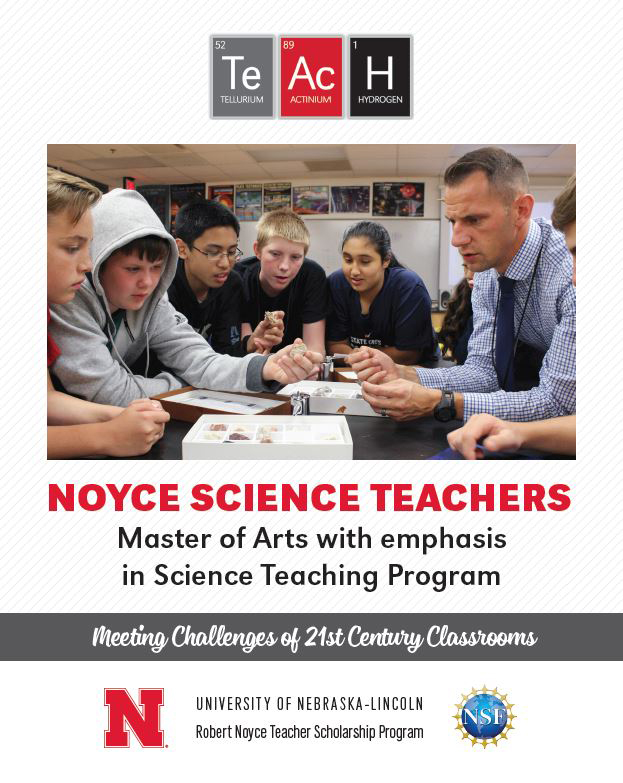
year in review 2016-17
In the news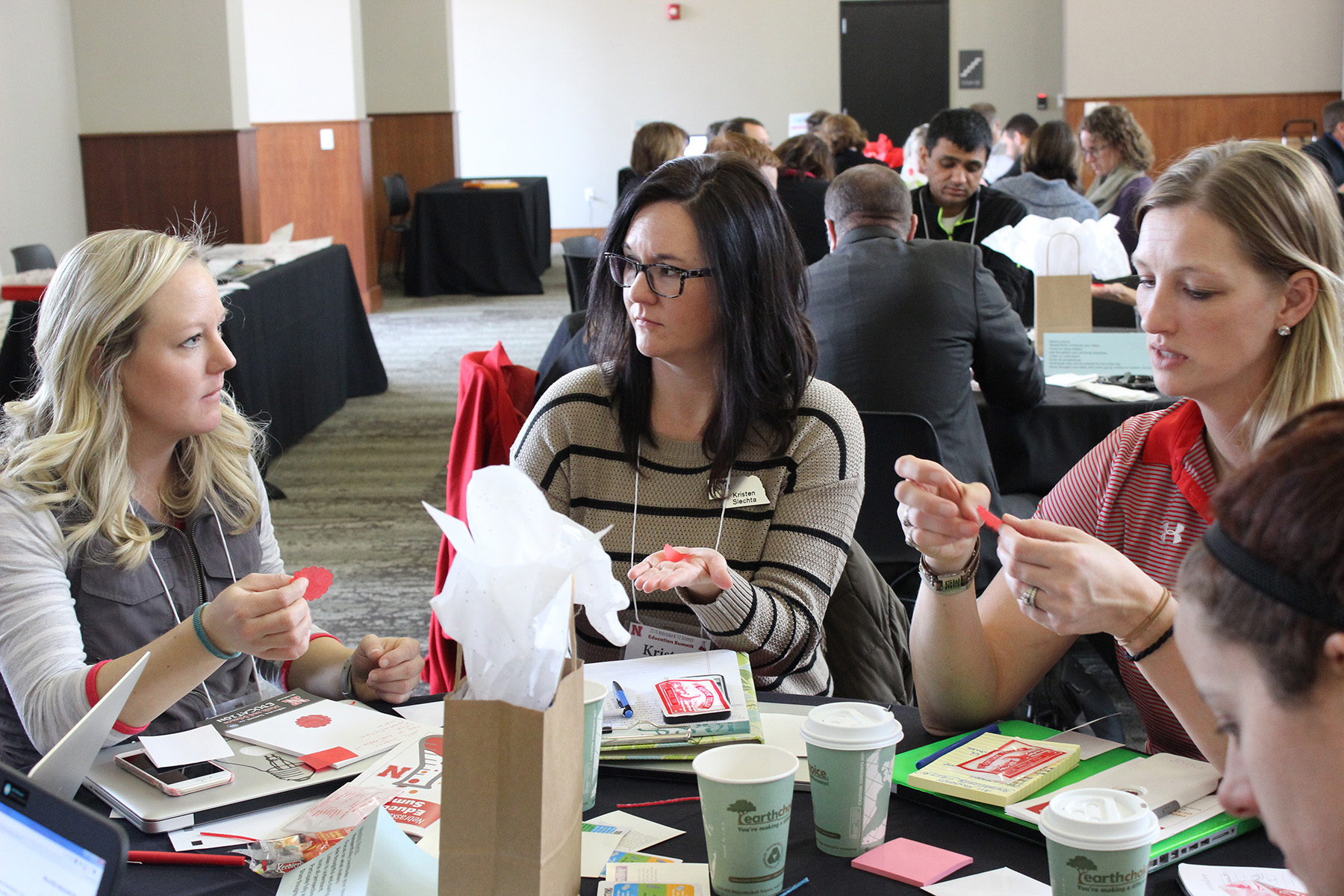
Statewide Impact: First Science Education Summit explores NGSS
Nearly 200 people attended the statewide Nebraska K-12 Science Education Summit on Dec. 12, 2016, at Nebraska Innovation Campus in Lincoln. This event provided an opportunity for science education stakeholders, including Nebraska Department of Education officials, school district science directors, ESU science staff developers, science teacher educators, K-12 science teachers, and University of Nebraska-Lincoln faculty and students, to learn about the Next Generation Science Standards and engage with members of Nebraska’s science education community. Cory Forbes, associate professor of science education and the coordinator of the IANR Science Literacy Initiative at UNL, led the event along with Sara Cooper, the science education specialist at NDE. Cooper presented a workshop on applying lessons from the Next Generation Science Standards.
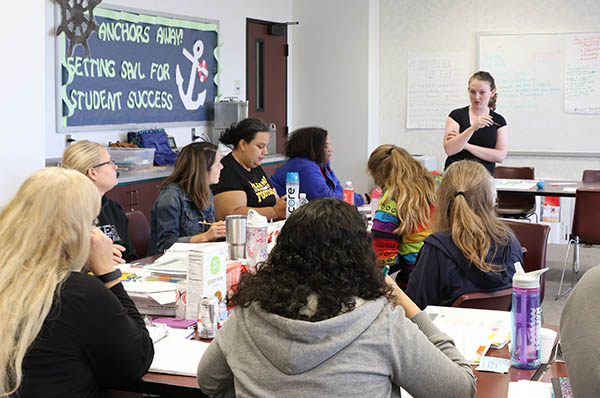
Regional Impact: Omaha Public Schools Teacher Leader Academy
The NebraskaMATH Omaha Public Schools Teacher Leader Academy (OPS TLA) was a partnership between the University of Nebraska-Lincoln and the Omaha Public Schools that started in July 2013 and ended in August 2017. The OPS TLA programs form a community of OPS mathematics teachers (grades K-12) dedicated to strengthening mathematics teaching and learning in OPS classrooms. OPS TLA was made possible through generous support from The Sherwood Foundation® and the Lozier Foundation in Omaha.
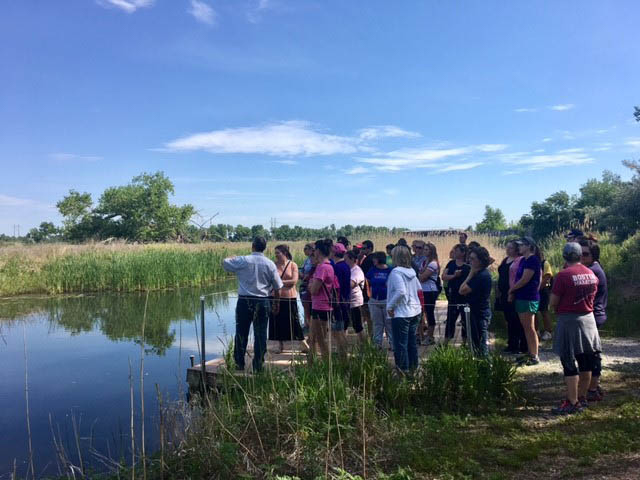
Statewide Impact: Nebraska Partnership TEAMS
The Nebraska Department of Education and UNL faculty have partnered to provide a professional development program aimed at improving K-12 math and science instruction throughout the state. With a focus on elevating academic achievement in Nebraska’s high-need schools, Nebraska Partnership TEAMS (Teaching to Enhance Achievement in Math and Science) delivers professional development sessions in six cities (Crete, Fremont, Grand Island, Norfolk, North Platte and Ogallala). Fifty-five elementary and secondary teacher leaders plan the sessions for 161 teacher participants. They met for two weeks in the summer of 2017 and will meet for four Saturdays in 2017-18. The project represents a collaboration between faculty from the Center for Science, Mathematics and Computer Education and the departments of Mathematics, Earth and Atmospheric Sciences, and Teaching, Learning and Teacher Education.
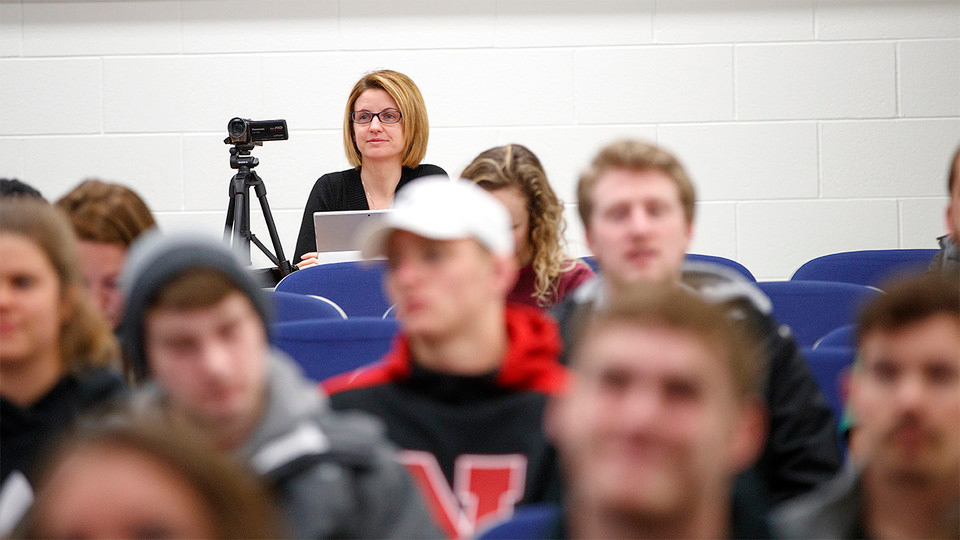
National Impact: Study finds lectures still dominate STEM ed
Marilyne Stains, assistant professor of chemistry, recently earned a five-year $941,174 Faculty Early Career Development Program Award from the National Science Foundation to comprehensively study university STEM teaching and to improve programs that train faculty to better teach science. These prestigious grants, known as CAREER awards, support pre-tenure faculty who exemplify the role of teachers-scholars through outstanding research, excellent education and the integration of education and research. The CAREER award will allow Stains to examine faculty teaching methods in Nebraska and across the nation. The study includes understanding what faculty know about new educational strategies, their beliefs about teaching, and other factors that influence teaching choices, such as departmental norms around education and individual instructors’ career levels. At Nebraska, the CAREER award also will allow Stains to improve faculty education workshops and provide individualized follow up with faculty research participants, offering suggestions and ongoing feedback on their teaching.
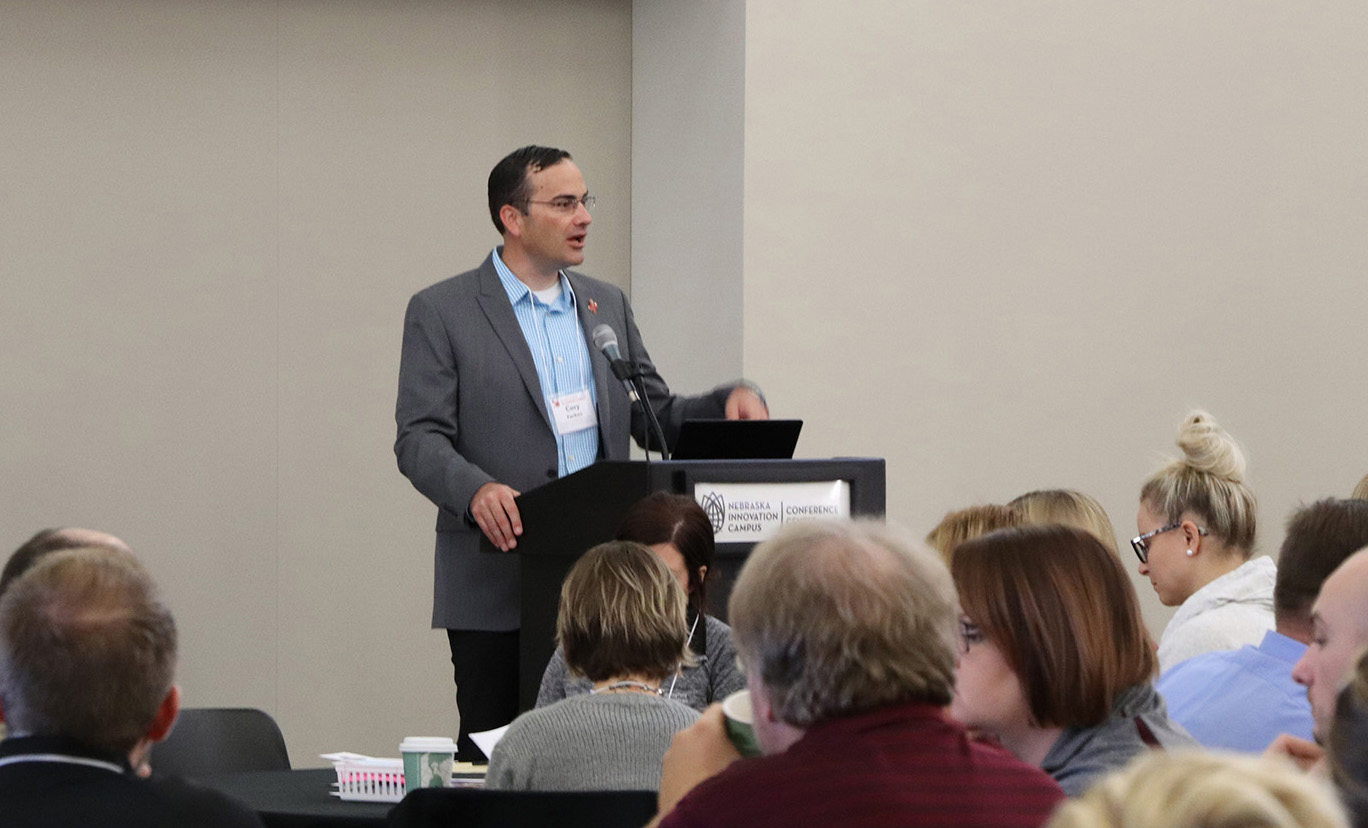
Statewide Impact: Fostering science literacy about water resource issues
Cory Forbes, associate professor of science education in the School of Natural Resources, is leading a 15-month education program to help teachers develop stronger knowledge of water and water resources that can be translated into their curriculum. Thirty middle- and high-school teachers from across the state have the opportunity to participate in the program, which focuses on supporting teaching that links food, water, climate, energy and environmental challenges related to questions of water quality and quantity. Teachers participate in water literacy workshops; water science research projects conducted by water scientists in Nebraska; and online coursework through the College of Agricultural Sciences and Natural Resources Master of Applied Science degree. The program aligns directly with the Science Literacy Initiative at the Institute of Agriculture and Natural Resources, which aims to foster a scientifically literate society capable of making effective decisions grounded in STEM-informed analysis of real-world challenges associated with food, fuel, water, landscape and people issues.
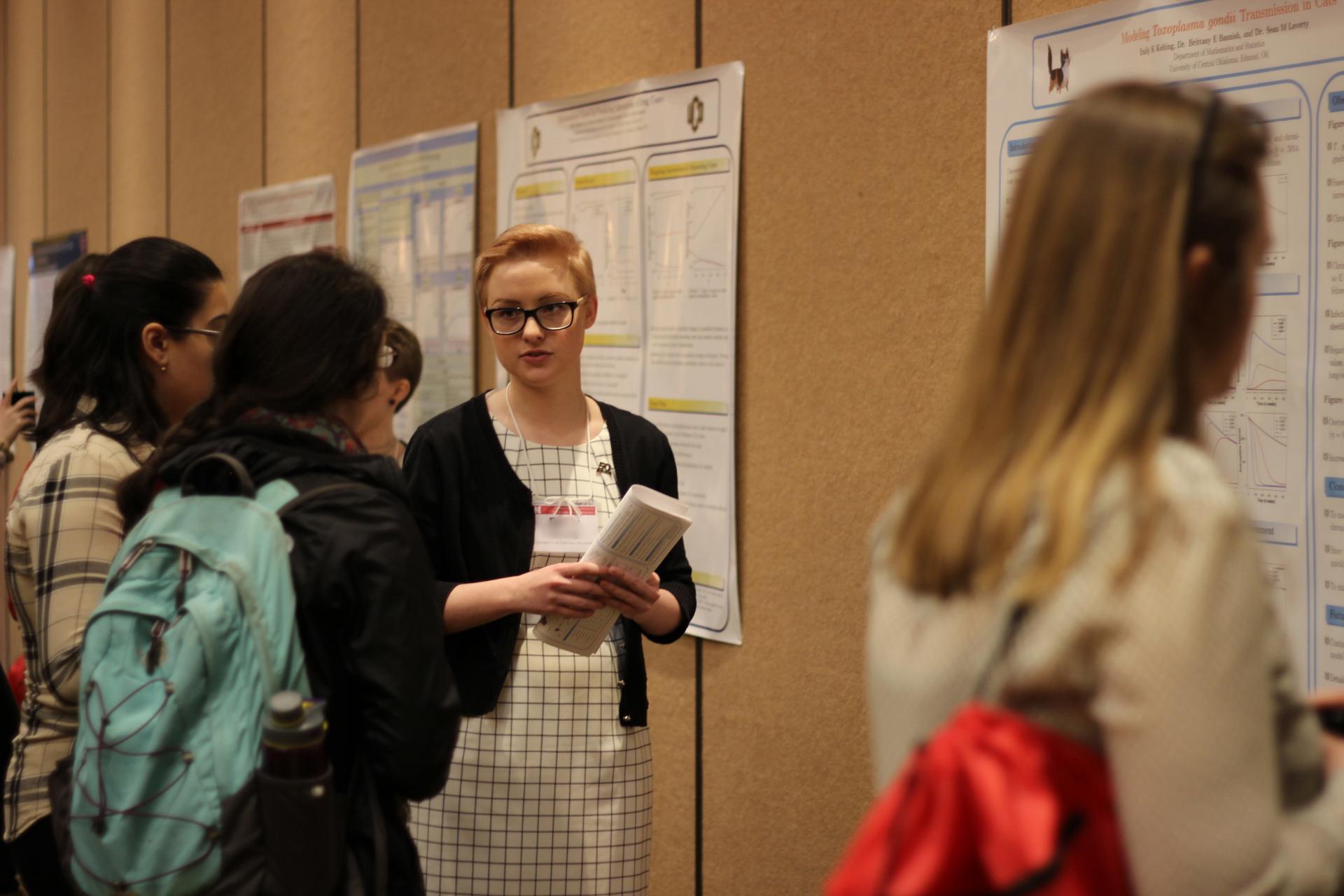
Global Impact: Nebraska Conference for Undergraduate Women in Math
The 19th annual Nebraska Conference for Undergraduate Women in Mathematics was held February 3-5, 2017, in Lincoln. We hosted 229 undergraduate participants from 123 institutions and 53 faculty members. Participants came from 37 states as well as Canada and Scotland. Students gave 124 talks and presented 138 posters on their own research. Plenary speakers were Ami Radunskaya (Pomona College, Claremont, CA) and Lincoln-native Brooke Shipley (University of Illinois at Chicago). Invited panelists were Syvillia Averett (College of Costal Georgia), Selenne Bañuelos (California State University, Channel Islands), Tracy Bohaboj (Duncan Aviation), Courtney Gibbons (Hamilton College), Alyssa Gottshall (NSA), Thomas Ivey (NSF), Sarah Powers (Oak Ridge National Laboratory), Sarah Reznikoff (Kansas State University) and Gail Towne (Bank of the West). This year was the first time we switched from a first-come, first-served registration system to an application system. The change was highly successful and resulted in a much larger range of institutions represented.
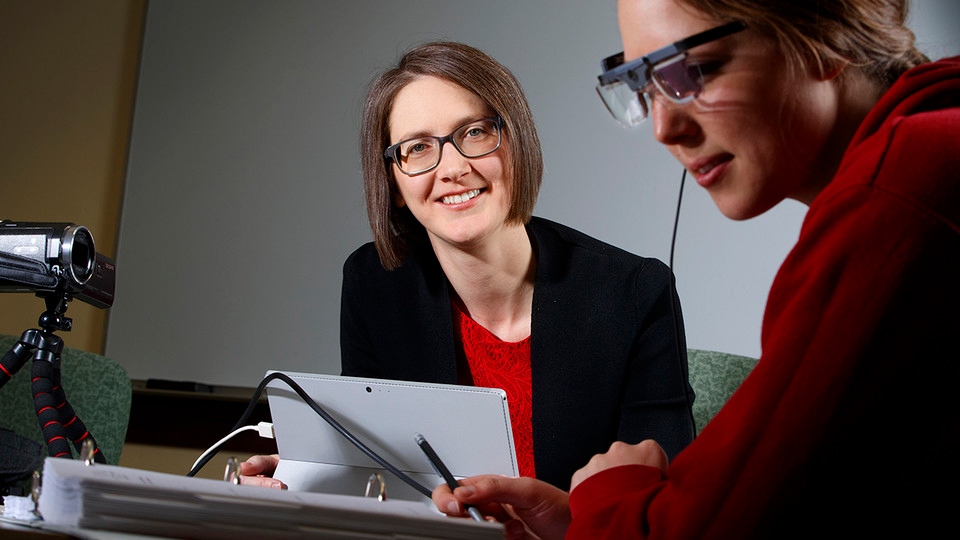
National Impact: Award to boost teacher education, student learning
Lorraine Males, Nebraska education researcher, earned a five-year, nearly $630,000 Faculty Early Career Development Program, or CAREER, award from the National Science Foundation to research how teachers currently approach textbooks. Males noticed that relatively little effort is spent helping K-12 math teachers use textbooks effectively, so her goal with this research is to develop teacher education materials for college-level courses and better prepare students for future teaching positions. In partnership with Lincoln Public Schools, Males and her research team will study eight middle- and high-school mathematics teachers and observe them enacting the lessons in the classroom. From the research results, Males will develop college-level instructional materials to prepare future teachers to use math textbooks effectively, which she will initially use in UNL’s education courses. Once the materials have been fully developed and assessed, Males will make them available nationally.
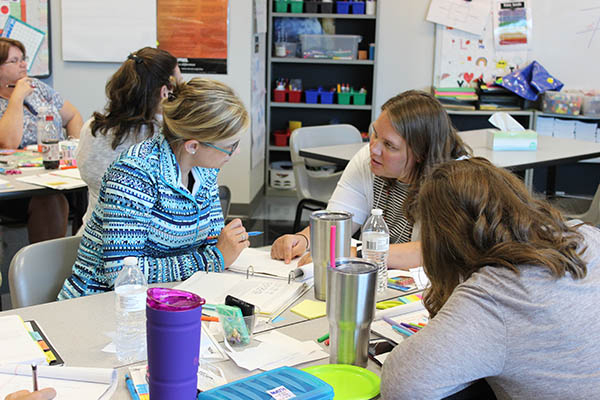
Statewide Impact: Primarily Math
Grants awarded in 2015 from Women Investing in Nebraska and the U.S. Department of Education’s Improving Teacher Quality program allowed 13 more teachers across the state to participate in and finish Primarily Math, a graduate program for primary grade teachers who have accepted the challenge to return to graduate school to study mathematics and the teaching of mathematics. The cohort convened in Central Nebraska and completed the program in June 2017. Districts in Educational Service Unit 3 also continue to help support teachers to participate in Primarily Math. Between 2014 and 2017, 46 teachers in ESU 3 have finished the program, with a new cohort planned to start in the summer of 2018.
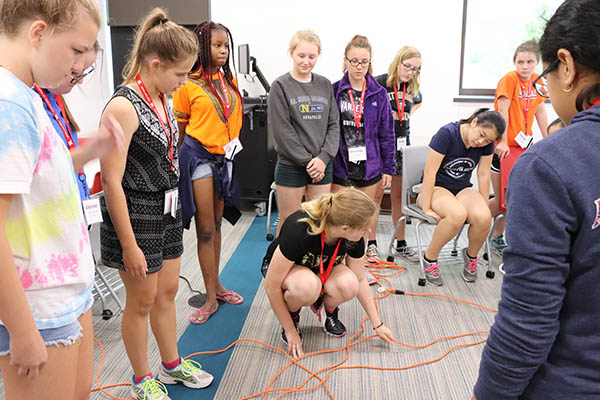
Global Impact: AGAM
Since 1997, girls in grades 10-12 have been participating in the All Girls/All Math summer camp, now known as AGAM: Nebraska Cryptography Camp. This weeklong summer mathematics camp for high school girls provides a stimulating and supportive environment for girls to develop their mathematical ability and interest. We held two one-week camps on July 9-15 and July 23-29 in 2017, with 50 total participants, including one from Senegal, Africa. In past years, participants have come from a range of other countries, such as South Korea and Belgium. Also, we recently switched to a voluntary tiered-pricing system, to allow families to choose a registration fee that fits in their budgets.
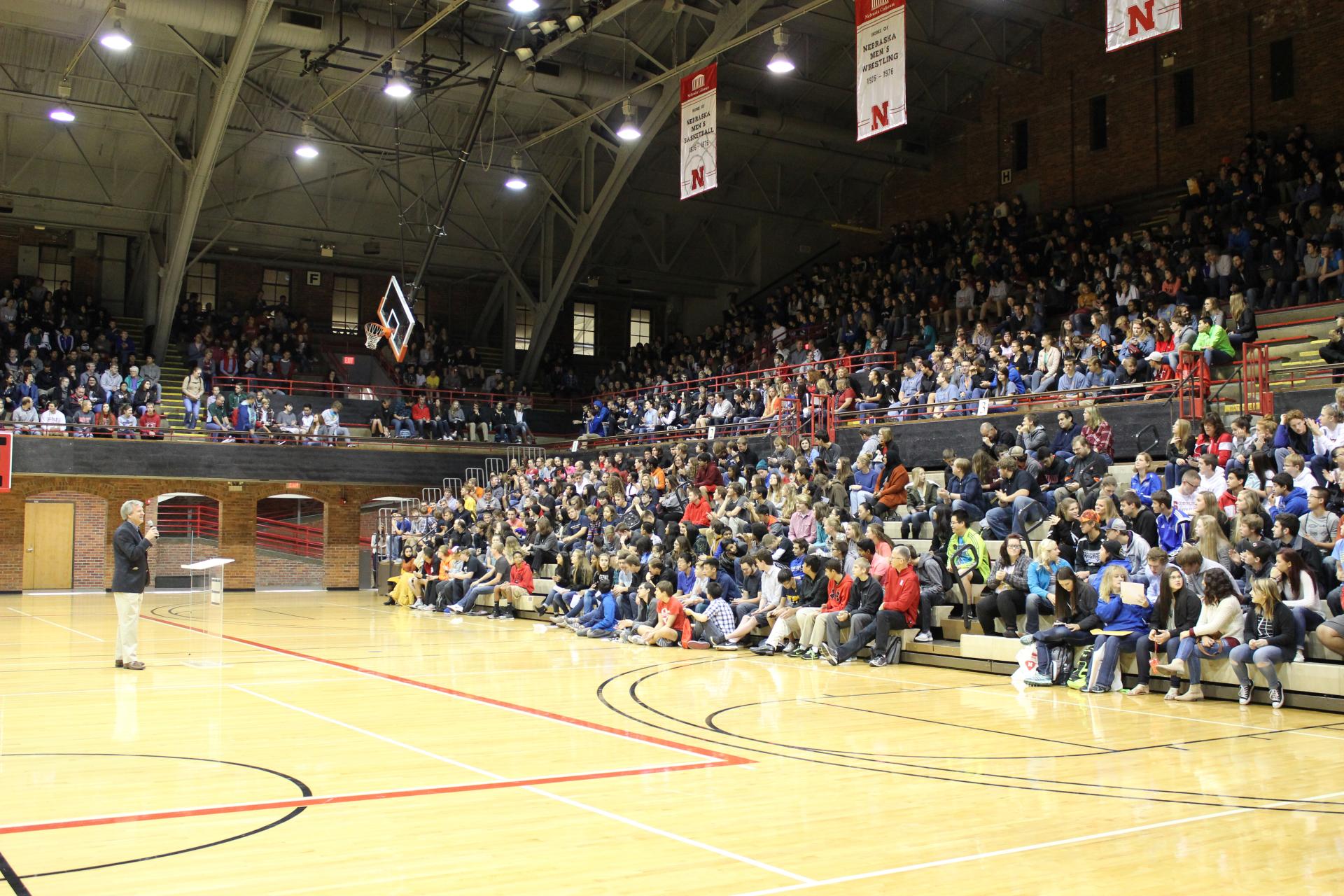
Statewide Impact: Math Day
The 27th Nebraska Math Day took place on Thursday, November 17, 2016, when we hosted 1,524 students. More than 100 Nebraska high schools bring students for a day of fast-paced mathematics. Math Day is designed for students in grades 9, 10, 11 and 12 and for exceptional students in lower grades. Math Day consists of one individual and two team mathematics competitions. All students participate in a multiple-choice, preliminary exam called PROBE I (Problems Requiring Original and Brilliant Effort). The top 40 students then move on to take the now famous essay exam called PROBE II. The PROBE top 10 Nebraska high school students (sum of PROBE I and II) are awarded a total of $34,000 in four-year scholarships to UNL.
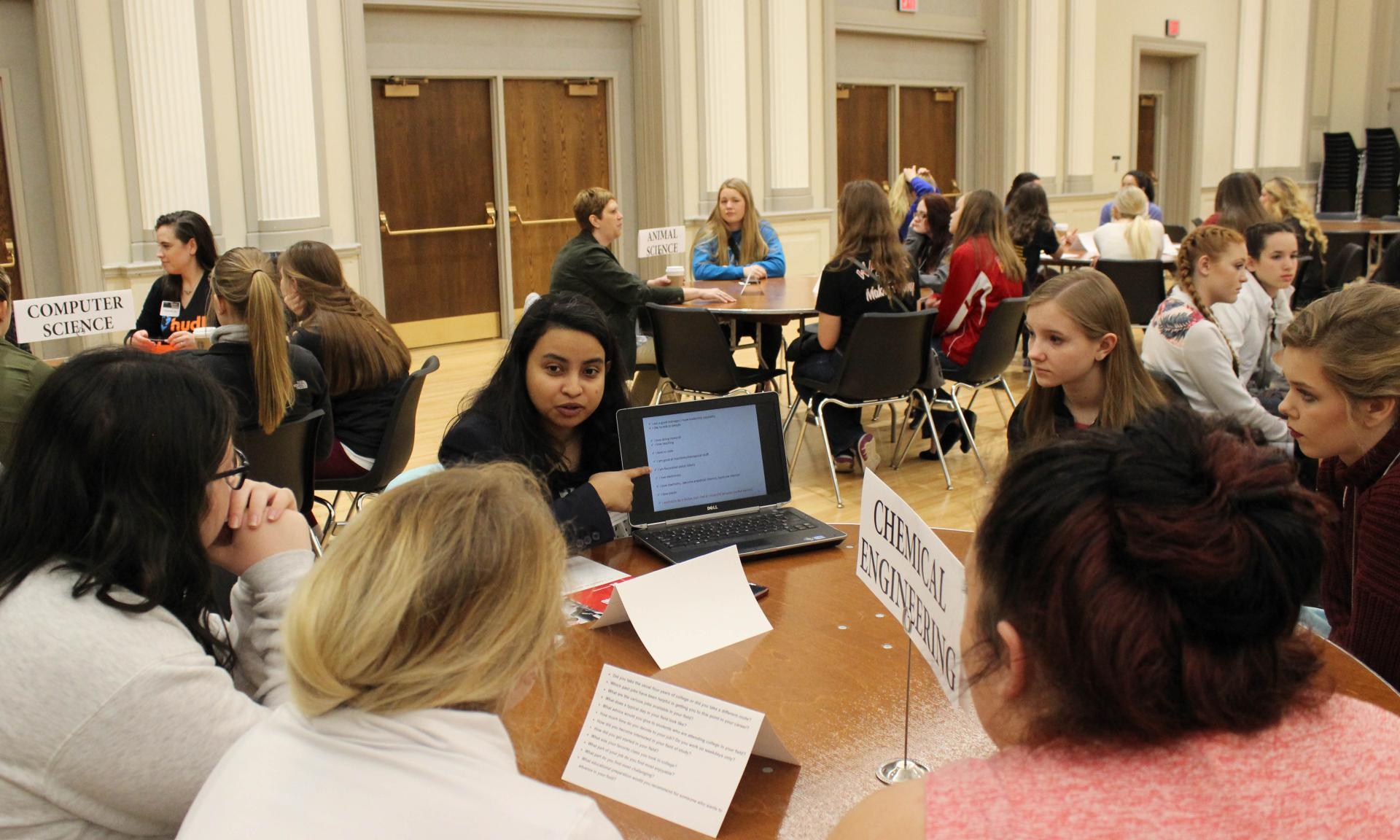
Regional Impact: Women in Science
The Nebraska Women in Science Conference exposes female high school students to a wide variety of science-related fields and encourages them to pursue majors and careers in STEM. This year, 92 students from 30 high schools in Nebraska, and two in Kansas, participated. Students toured either a UNL campus or CHI Health St. Elizabeth hospital. The keynote speaker at the banquet was Dr. Terri Norton, associate professor of construction engineering in the Durham School of Architectural Engineering and Construction at UNL. For the first time, students also took part in "speed networking discussions" with women in industry and Nebraska professors to get their questions answered quickly. Hands-on workshops were provided by Biological Sciences, Biological Systems Engineering, Chemistry, Computer Science, Dentistry, Earth and Atmospheric Sciences, Entomology and Mathematics. Students visited department displays and conducted lab experiments at the Beadle Center.
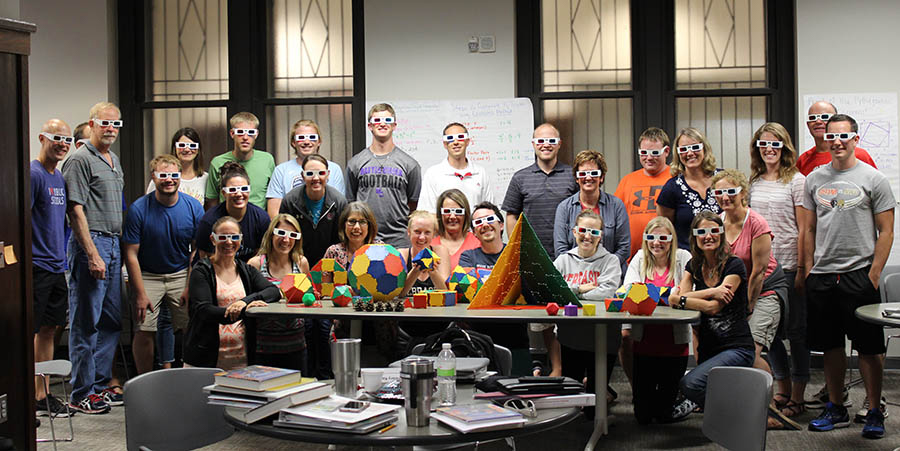
Statewide Impact: Nebraska Math and Science Summer Institutes
In summer 2017, 300 distinct teachers in math and science education took a course through the Nebraska Math and Science Summer Institutes, or other NebraskaMATH programs, for a total of 535 registrations in 42 math, science and pedagogy classes. Courses were held in Ashland, Grand Island, Hastings, Kearney, Lincoln, Omaha and Papillion, as well as additional Nebraska Partnership TEAMS locations of Crete, Fremont, Norfolk, North Platte and Ogallala. Three new courses were popular and highly successful with participants: 1) SOCI 898: Activating STEM Identities; 2) TEAC 892: Manipulatives in Math Education; and 3) TEAC 880E: Teaching with Technology in K-8 Classrooms.
More Impacts
Master of Arts for Teachers degree: Since 2010, more than 90 teachers have completed the MAT degree through NMSSI courses and online courses during the academic year. Fourteen graduated in the 2016-17 academic year. Another 50 secondary teachers and educators from around the world are currently working on their MAT degree.
Doctoral degrees: Danielle Buhrman, Grand Island Public Schools, and Paula Jakopovic, Omaha Public Schools
Grants: 10 new grants were funded by CSMCE faculty, with three more pending.
Meeting Challenges of 21st Century Classrooms
To meet the state’s and the nation’s need for more highly qualified science teachers, the 14-month Master of Arts with emphasis in science teaching (MAst) program was established in the College of Education’s Department of Teaching, Learning, and Teacher Education at the University of Nebraska-Lincoln, along with a Robert Noyce, Track I, Phase I grant from the National Science Foundation, awarded in 2010. This report presents a summary of the accomplishments of this Noyce grant, in which 60 post-baccalaureate science majors and professionals were provided with Noyce stipends to become science teachers. The MAst program is now in its sixth year, producing an average of 10 new science teachers per year. The project team, led by Dr. Elizabeth Lewis, was also awarded a second Noyce grant in 2015 to support 30 more individuals to become science teachers along with funding to continue to research the practices of beginning science teachers. The MAst program engages science professionals in a research-informed program of study that supports them in developing the knowledge, skills, and dispositions necessary to meet the challenges of the modern American secondary science classroom.
